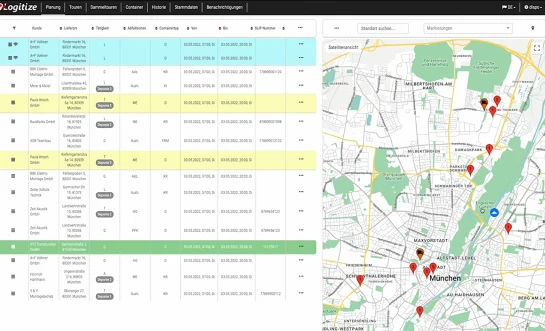Technology services we provide
We use Jenkins in a wide range of services.
Automated Build Processes: Jenkins automates the building of code from source repositories whenever changes are committed. This ensures that code is compiled and packaged consistently, reducing manual errors.
Automated Testing: Jenkins can execute automated tests (unit, integration, and functional tests) as part of the build process, providing immediate feedback to developers about the quality and stability of their code.
Code Quality Analysis: Jenkins integrates with tools like SonarQube, Checkstyle, and PMD to perform static code analysis. This helps in identifying code smells, security vulnerabilities, and adherence to coding standards.
Automated Deployment: Jenkins automates the deployment of applications to various environments (development, staging, production). This can include deploying code to web servers, cloud platforms, or containers.
Pipeline as Code: Jenkins enables the definition of deployment pipelines using code (Jenkinsfile). This allows for versioning and managing complex CI/CD pipelines as part of the codebase.
Release Management: Jenkins facilitates the creation of release pipelines that automate the process of building, testing, and deploying software releases. It helps in ensuring that each release is consistent and follows a defined process.
Monitoring Integration: Jenkins can integrate with monitoring tools like Nagios, Grafana, and Prometheus to track the health and performance of applications and infrastructure. It can trigger alerts or actions based on monitoring data.
Reporting and Notifications: Jenkins provides detailed build and deployment reports, including test results, code quality metrics, and deployment statuses. It can send notifications to teams via email, Slack, or other communication channels.
Artifact Management: Jenkins integrates with artifact repositories like Nexus and Artifactory to store and manage build artifacts (e.g., binaries, libraries, Docker images). This ensures that artifacts are versioned and can be reused or deployed consistently.
Versioning and Tagging: Jenkins can automate the versioning and tagging of builds, helping teams to track and manage different versions of the application.
Docker Integration: Jenkins can build, test, and deploy Docker containers, making it an essential part of containerized application workflows. It automates the building of Docker images and the deployment of containers to environments.
Kubernetes Deployment: Jenkins integrates with Kubernetes to automate the deployment and management of applications in a Kubernetes cluster. It can be used to create and manage Kubernetes resources like pods, services, and deployments.
Version Control Integration: Jenkins integrates with various version control systems like Git, Subversion, and Mercurial. It can trigger builds automatically when changes are pushed to the repository, ensuring continuous integration.
Automated Merging and Branch Management: Jenkins can automate branch management tasks, such as merging changes from feature branches into the main branch after successful builds and tests.
Speed your project forward with
Smoothshoring™
Experience the Glatco difference when you work with our US-based program managers, tech leadership, and executive coaches to smooth the process of your technical projects and outsourcing.
What are the benefits of using this technology
Automated Build and Test Processes: Jenkins automates the process of building, testing, and deploying software, reducing the need for manual intervention. This leads to faster development cycles and minimizes the risk of human error.
Continuous Integration (CI): Jenkins enables continuous integration by automatically integrating code changes from multiple developers into a shared repository. This ensures that the code is always in a working state and helps detect integration issues early.
Streamlined Deployment Pipelines: Jenkins facilitates the creation of complex deployment pipelines, automating the process from code integration to production deployment. This ensures consistent and reliable software releases.
Faster Time-to-Market: By automating the deployment process, Jenkins helps in reducing the time it takes to deliver new features and fixes to customers, giving businesses a competitive edge.
Automated Testing: Jenkins integrates with a wide range of testing tools to automate unit, integration, and functional tests. This ensures that code changes are thoroughly tested before being merged, leading to higher code quality and fewer bugs.
Code Quality Analysis: Jenkins can run static code analysis tools, such as SonarQube or Checkstyle, to enforce coding standards and identify potential issues like code smells and security vulnerabilities.

Tailored ways to work with you
Smooth from start to finish





